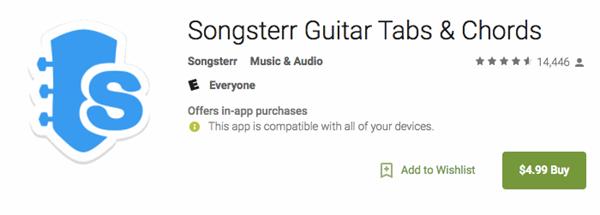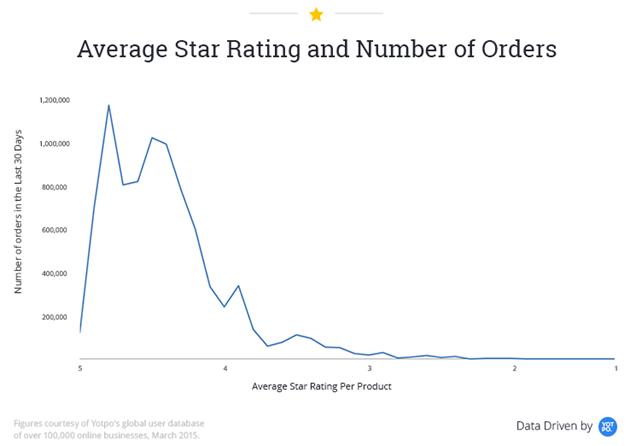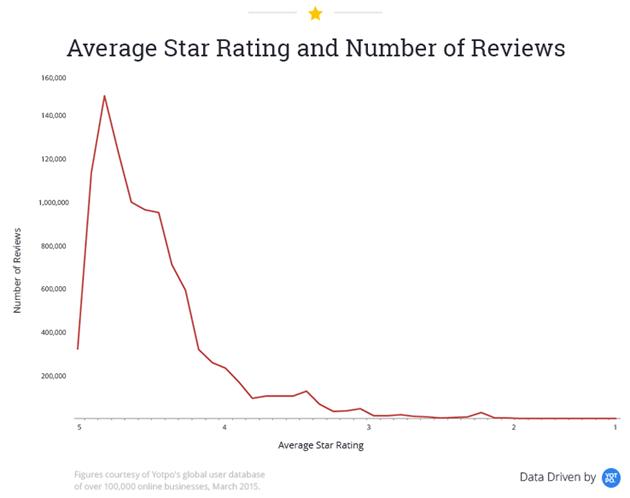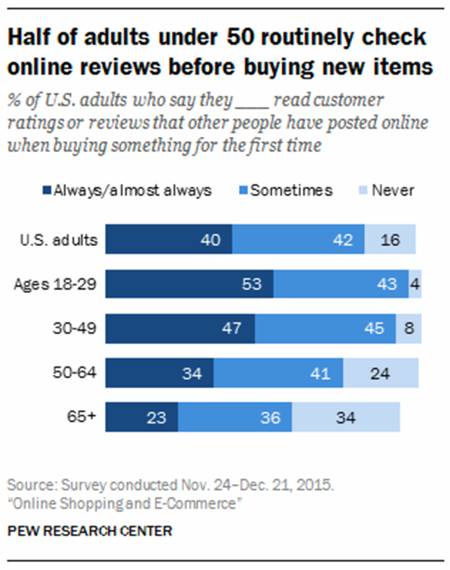Star ratings are simple, but they have an immense effect. They increase social proof, boost word-of-mouth marketing, and improve the results of paid ads. And, most important, they influence purchases.
So... What's social proof?
Social proof is "a psychological phenomenon where people assume the actions of others in an attempt to reflect correct behavior for a given situation." That's the answer you get by Googling "social proof," courtesy of Wikipedia.
Stay tuned. The rest of this article is 99% jargon-free.
If you're hip to the teachings of Robert Cialdini, author of Influence: The Psychology of Persuasion, you're familiar with these six principles:
- Liking
- Reciprocation
- Consistency
- Scarcity
- Social validation
- Authority
Here social proof goes by the name "social validation," but it means the same thing: People look to others for cues on how to think, feel, and behave.
This article is about e-commerce, so I'm going to add, "buy" to that list. Buying is a behavior, and people are more apt to buy the stuff others approve of and suggest.
Amazon made us star-struck
Clearly, the world had star rating systems (often 1-5 stars) before Amazon. Customers would often rate a product, service, or a site from one to five stars. However, it'd be naïve not to credit the mighty king of the e-commerce jungle for making it so mainstream.

Should I part with $4.99 to get guitar music from this app? A quick glance at its star ratings help convince me it's a good buy.
Want proof for star ratings' powerful influence? Yotpo analyzed one million reviews across multiple e-commerce sites.

It found that products with higher star reviews have a much higher volume of purchases. Additional data from the study revealed the following:
- Products with an average rating of 5 stars make up 54% of the orders.
- Products with an average rating of 4 stars make up 40% of the orders.
- Add them up: 94% of all purchases are made for products with an average rating of 4 stars or more.
Star ratings have a snowball effect
When people begin praising a product, others are quick to join the party. And people tend to write reviews for products with higher average ratings. Since there are more reviews for higher-rated products, the quantity of reviews also influence purchase decisions.
Here's some data:

- 94% of the reviews were written for products with an average rating of 4 stars and above.
- There were 174% more reviews for products with an average rating of 5 stars than 4 stars.
- There were 7X more reviews for products with an average rating of 4 stars than those with 3 stars.
The stars shine on social media
Star-rating reviews definitely help increase conversion, but they can be enormously powerful for increasing reach and driving traffic from social media too.
Social referrals attract valuable customers with higher lifetime value.
In a MarketingProfs article, Shoma Sarkar writes, "To exponentially increase the value of ratings and reviews, every marketer should include positive customer comments in their social marketing programs across social networks such as Facebook, Twitter, and LinkedIn."
Traffic from reviews makes up a big portion of e-commerce stores overall traffic. Yotpo research from 2014 found reviews are accountable for an average of 6% of all the traffic coming from Facebook, and about 20% of Twitter traffic to e-commerce stores. Sharing reviews on Twitter boosted traffic 26%. What's more, using reviews on Twitter boosted time-on-site 35%.
Sarkar offers the following suggestions for using ratings and reviews at scale in your social marketing:
- Create a process to integrate ratings and reviews into your social media marketing platform so you can you can manage, monitor, and distribute reviews on key social channels.
- Use your social media management platform to publish review content based on your fans' and followers' social connections, interests, or locations.
- Use paid advertising on social networks to include reviews in ads to reach highly targeted groups.
- Measure the impact on brand engagement and sales.
Where else do you stick all these stars?
The more widely you use star ratings and reviews in your marketing, the more you'll benefit from them.
- Share great reviews across your website to showcase happy customers in key conversion spots. You can display product and site reviews anywhere on your site, from your homepage to checkout pages.
- Spotlight your most reviewed and popular products on your e-commerce site.
- Ask your customers to share their reviews and provide coupons and special offers when doing so. You will generate new traffic as well as entice past customers to come back to redeem their discounts.
- Turn positive reviews into Facebook ads. Yotpo claims ads with reviews have higher ROI with increased clickthrough rate and decreased cost per action. (Here's more from Facebook on this strategy.)
- You can also improve the performance of your Google AdWords campaigns by displaying ratings and reviews alongside your ads and in product listing ads.
- Google indexes reviews so they show up in SERPs, seller ratings, and product listing ads; that increases organic traffic and the effectiveness of your paid ads.
- Use reviews in your email to bring past shoppers back.
Chase those stars
A report from Pew Research Center found that 40% of US adult consumers say they always or almost always read online customer reviews before making purchases.

The study also claims, "The frequency with which people read online reviews is also correlated with how often they shop online. Roughly two-thirds (67%) of weekly online shoppers say they nearly always read customer reviews before buying new items."
Clearly, it's in an e-commerce company's best interest to take a proactive approach to gathering and publishing customer reviews. While the people prone to writing reviews might be "power users," reach out to the rest of the pack and give them incentives to join the party.
Sending email asking for reviews is one approach. Social media is another. And you need not stop there. Your website and store should encourage them too.
Show your customers you care about their opinions. Thank them when they put in the effort to provide them. Go get ratings and reviews however you can. They're key to making your product shine online.




